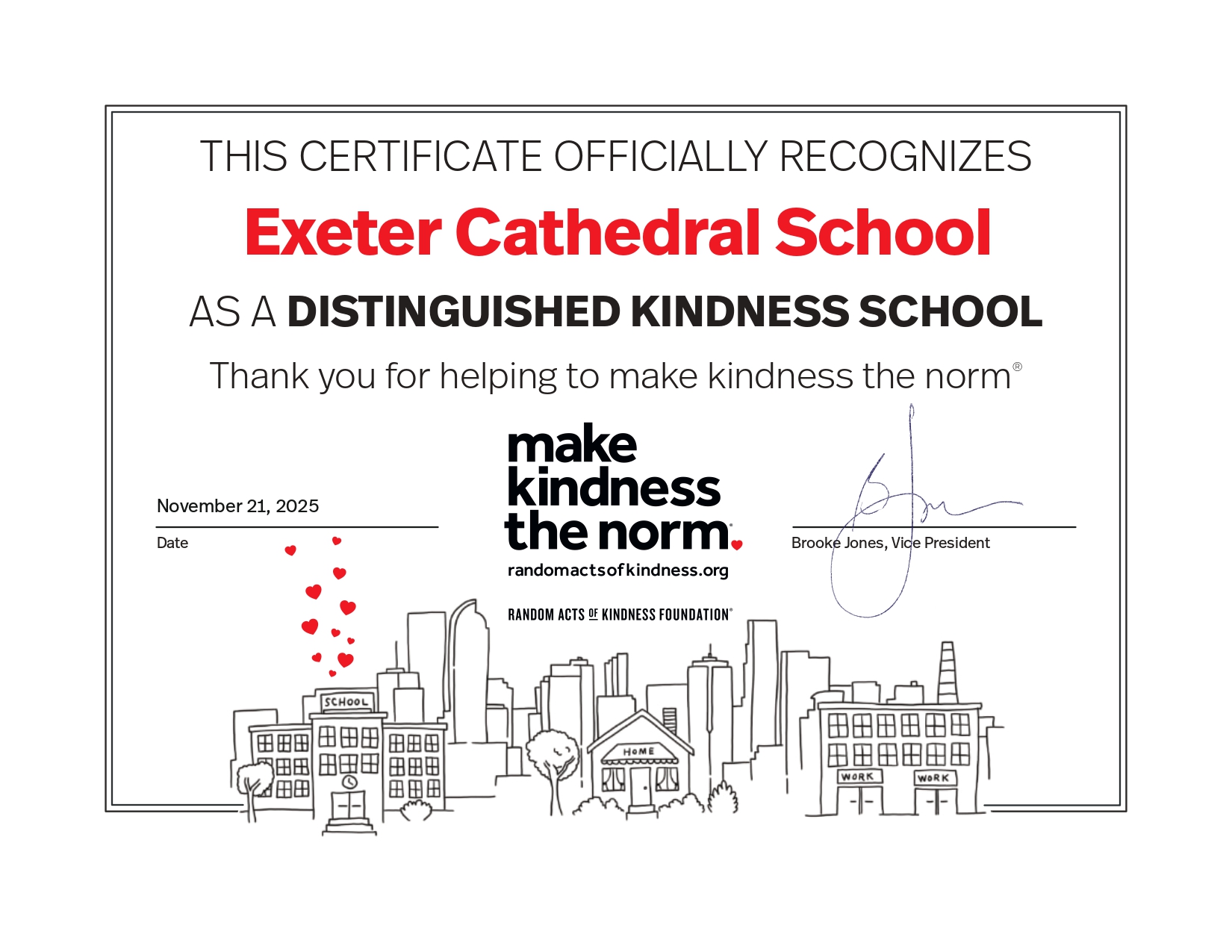Dear Parents, Families, Guardians and Friends,
Every one of us, I suspect, is feeling the tension and the perplexity that arises from the brutality of the war in Ukraine. I’ve tried to speak to the children of the Prep School [Years 3 – 8] about the word ‘Crisis’ as it is constantly in the air; a word that’s easy to use but is seldom understood at depth.
On the whole, we associate the word ‘Crisis’ with an event or process that has inter-national implication. There are occasions when we speak of people’s individual relationship being ‘in crisis’. The planet herself is ecologically in a crisis.
With the Ukraine Crisis, a number of factors come together that cause anxiety in us.
When that happens, I find that careful reflective thinking is over-shadowed. Internationally, that can lead to unpredictable and dangerous confrontation.
The temptation is to blame
This crisis involves immeasurable suffering, particularly by those who are caught in ‘the eye of the storm’. I’m left feeling that painful bewilderment as to how this Ukraine Crisis has erupted. The temptation is to blame, as I mentioned in my letter last week.
The aggressor at present is obvious, surely. The added danger is that the public spread of blame adds to the bitterness of the crisis, as it’s inclined to bracket together a whole nation or people. However, there’s no justification that can be made for invading and indiscriminately bombing civilians.
There are disturbing conversations I’ve heard where images of ‘good’ and ‘evil’ are used in the context of this Ukraine crisis. The ‘forces of light’ and the ‘forces of darkness’ are then pitted against each other. This imagery, this inclination has a long history. In this crisis, conversations can be accompanied by pointed nodding of heads when naming from where evil has sprung. Such thinking is all too easy, but nevertheless understandable in the face of a worrying crisis, the outcome of which no one can satisfactorily predict.
I can feel in myself as I write this the desire for the fighting to stop and to be able to breathe more easily. Yes, I’m afraid for myself. Of course! But, that’s not the reality. There are countless historical, political, religious, psychological, national and inter-national factors that leave us all with a multitude of uncertainties. The word ‘evil’ doesn’t help to clarify matters. Indeed, it creates a false and dangerous certainty.
Will we learn from history?
Leo Tolstoy (arguably one of Russia’s greatest writers), in his massive historical novel ‘War and Peace’ paints the picture of what appeared to be the retreating Russian army in the face of Napoleon’s onslaught, which was drawn more and more into Russia in the dead of winter only to have exhausted themselves. Given the present crisis, this is a strange irony. However, tempting though it may be, it’s all too easy to draw general conclusions from parallels in history.
One of the greatest composers of the 20th century was the Russian, Dimitri Shostakovich. In his 13th symphony, he used the poetry of the great 20th century poet, Yevtushenko, on the extermination of Jews at Babi Yar, which has recently been caught up in bombing. As I think and pray for Ukraine’s southern city Mariupol; Shostakovich’s 7th Symphony [The Leningrad] is a musical meditation on cities besieged. I can’t help wondering how much we do learn from history.
What does ‘crisis’ mean?
Literally, the word ‘Crisis’ means ‘a dangerous moment of opportunity’. In an emergency department of a hospital, when someone is rushed in with serious injuries or a sudden illness, the medical staff deal with a dangerous moment in someone’s life, but it’s also a moment of opportunity, in that effort and skill are used to bring some sort of healing and hope. Another Crisis, Covid-19, produced thousands of such scenes.
Opportunities, in the context of the Ukraine Crisis, are already springing up across the world to raise funds and resources for the fleeing people of Ukraine. Perhaps a crisis is a wake-up moment. The pain and suffering cannot be avoided, indeed they must be faced and handled with skill.
Did Jesus have crises?
Jesus’ life had several crises, from the moment he was conceived in Mary, right through to his execution. The Resurrection was and is a crisis. The season of Lent is a crisis, because it was Jesus’ crisis and His Presence being ‘within’ me, I face Jesus Christ as a crisis moment in that I have to decide whether to follow or not.
The dangerous aspect of this is that following is always costly. The opportunity is for me to be a person of compassion, hope and service, which is living the Christ-like life. Maybe this Lent will be a particularly important one.
The photograph immediately above is of the interior of St Andrew’s Basilica in Kyiv.
If you want to talk with me at any point, please don’t hesitate to send me an email: [email protected]
In the critical Love of God,
Bishop Martin
School Chaplain








